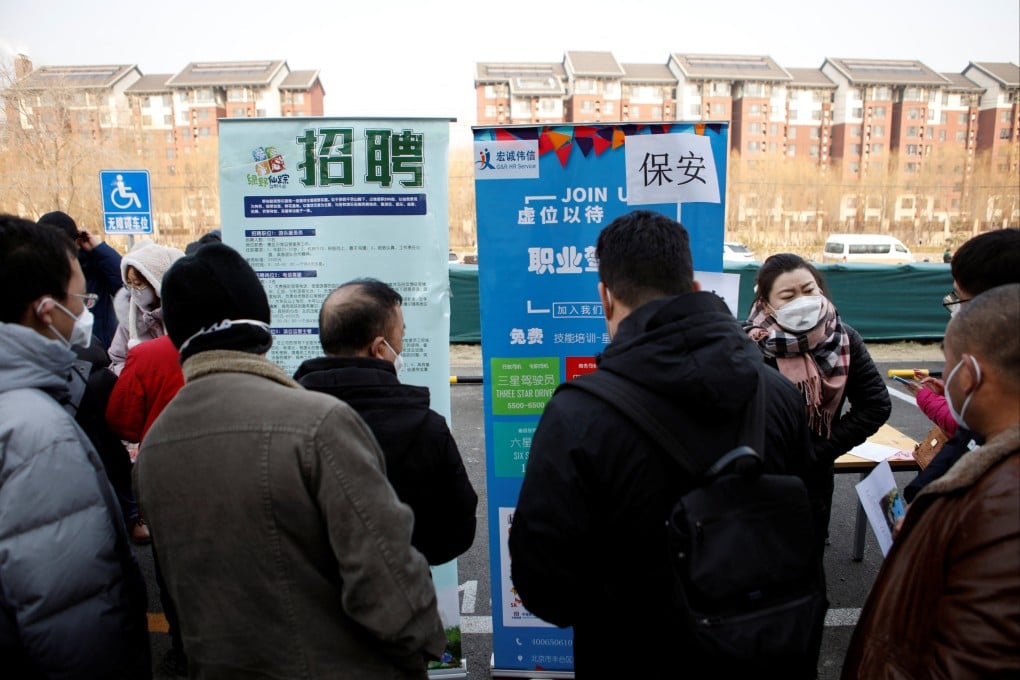China jobs: white-collar employees increasingly fear firings, while fresh graduates face unimaginable challenges
- New report from leading job-recruitment website finds that nearly half of white-collar workers worry they may lose their jobs this year – marking a sharp rise in such fears from last year
- Some young employees, typically recent college graduates, are adopting a take-what-I-can-get mentality as uncertainties and outlook turn bleak

Chinese jobseekers across the board are finding their search plagued by uneasy employment prospects and the country’s precarious economic recovery – from white-collar workers discreetly looking to jump ship amid job-loss fears, to struggling recent graduates facing unabating difficulties in the job market.
Pretty much everyone is looking at new opportunities, said Veronica Yang, including herself. She currently works at a state-owned internet firm in Beijing.
But she and her friends are also being cautious about making any hasty career moves amid the difficult economic climate.
“With the bleak [economic] environment and the pressure to sustain business, [jobs at] all companies have become very stressful, and meanwhile the benefits have been shrinking,” Yang said, adding that some of her friends received pay cuts, while some of their annual bonuses and investment portfolios have been affected.
“Therefore, while ‘I don’t want to work here any more’ is a thought shared by many, none of us really quit – there are fewer desirable job opportunities out there, while changing jobs has become less financially reasonable yet increasingly risky, as the chances of failing to pass the probation period at a new job are growing greater due to higher expectations and demands.